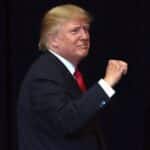

The Senate Foreign Relations Committee is set to hold critical hearings for Senator Marco Rubio and Representative Elise Stefanik, President-elect Donald Trump's nominees for high-profile diplomatic positions, on January 15 and 16, respectively according to NTD.
Rubio is nominated for Secretary of State, while Stefanik is poised to take on the role of U.S. ambassador to the United Nations, both enjoying bipartisan backing ahead of these discussions.
Trump officially announced Rubio's nomination for Secretary of State on November 13. In support of his choice, Trump highlighted Rubio as a "respected leader and advocate for freedom." Rubio, a seasoned member of the Senate since 2011, is known for his tenure on both the Senate Intelligence Committee and the Senate Foreign Relations Committee.
Rubio, who previously competed against Trump in the 2016 presidential race, has expressed his commitment to align his efforts with Trump’s foreign policy objectives.
He stated, "As Secretary of State, I will work every day to carry out his foreign policy agenda." Further emphasizing his objectives, Rubio added, "Under the leadership of President Trump, we will deliver peace through strength and always put the interests of Americans and America above all else."
Both Rubio and Stefanik have managed to secure bipartisan support. Notably, Democratic Senators such as John Fetterman from Pennsylvania and Mark Warner from Virginia have voiced their backing for Rubio. This cross-party support could potentially play a pivotal role during the confirmation hearings.
Likewise, Fetterman has extended his support to Stefanik, despite her sometimes controversial stances. Stefanik's nomination was announced by Trump on November 11, and she is a consistent advocate for combating anti-Semitic views.
Stefanik's focus on anti-Semitism has been central to her proposed agenda as a U.N. ambassador. She has not shied away from sharply criticizing the United Nations, characterizing it as a "den of anti-Semitism" and articulating her dissatisfaction with its handling of matters concerning Israel, particularly after the Hamas attacks on October 7, 2023.
"The work ahead is immense as we see antisemitism skyrocketing," Stefanik remarked, underlining the global challenge she intends to confront.
She further criticized the United Nations' perceived leniency towards Iran and its affiliates, stating, "Ever since and even before the barbaric terrorist attacks [from] Hamas on Oct. 7, the U.N. has continuously betrayed Israel and betrayed America, acting as an apologist for Iran and their terrorist proxies."
President Trump has assured both nominees of his confidence in their abilities to uphold American interests on the international stage. In a recent statement, he praised both Rubin's longstanding service and Stefanik’s ability to challenge unfavorable international narratives concerning Israel.
Expressing her readiness, Stefanik said she is "prepared to advance President Donald J. Trump’s restoration of America First peace through strength leadership on the world stage on Day One at the United Nations."
Anticipation surrounding these hearings stems from both nominees' high-profile backgrounds and the weight of the responsibilities they are set to inherit.
Rubio's experience in legislative and intelligence matters complements Trump's intentions for a strong diplomatic strategy, while Stefanik’s outspoken stance on international relations topics may redefine U.S. interaction with key global forums.
With strategic preparation underway, both individuals will be aiming to outline their vision directly before committee members starting January 15.
Given the complex geopolitical climate, these hearings serve as pivotal platforms for Rubio and Stefanik to affirm their strategies and policy orientations. Their ability to address international diplomatic challenges will be central to how effectively they can support Trump's overarching foreign policy agenda.
Both individuals are expected to encounter rigorous inquiry from the committee to validate their stances and readiness to step into these significant roles.
The confirmation processes will provide deeper insights into how Rubio and Stefanik plan to navigate turbulent international waters under Trump's second administration. Their responses will likely delineate future U.S. diplomatic strategies and influence America’s global posture moving forward.



